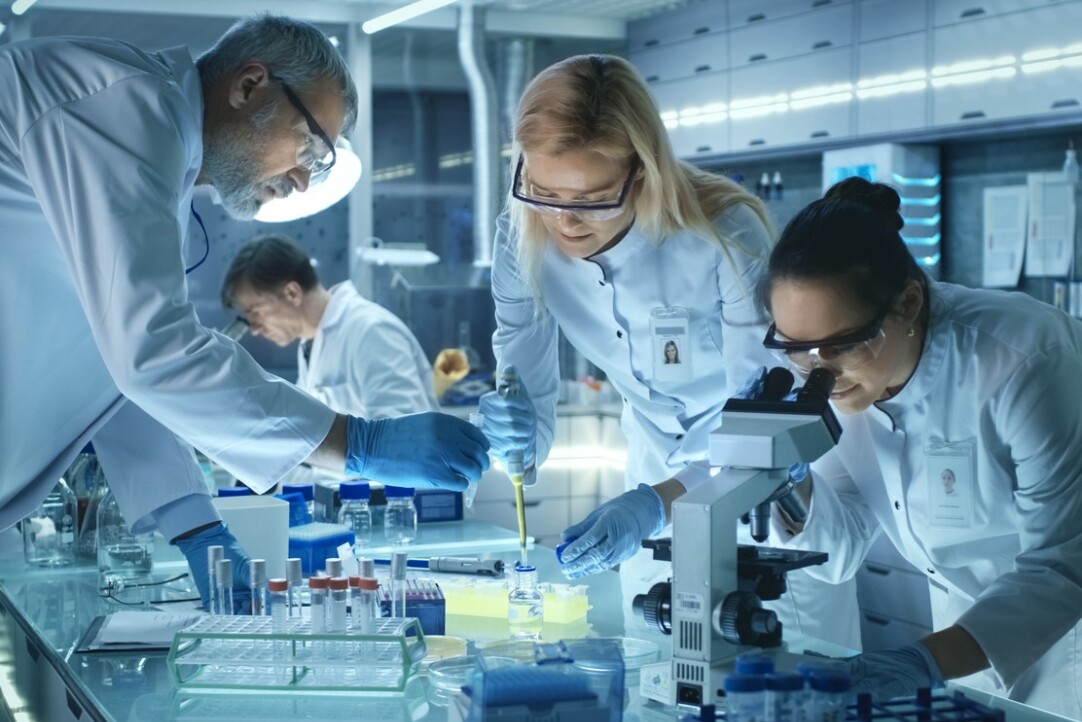Scholars Disprove Existence of ‘Crisis of Trust’ in Science

An international team of researchers, including specialists from HSE University, has conducted a large-scale survey in 68 countries on the subject of trust in science. In most countries, people continue to highly value the work of scientists and want to see them take a more active role in public life. The results have been published in Nature Human Behaviour.
Research by Arthur Lupia and David Allison had previously indicated that trust in science and scientists has been declining over the past five years, with the COVID-19 pandemic exacerbating this crisis. To study the issue in more detail, the international multidisciplinary consortium TISP (Trust in Science and Science-Related Populism) conducted a survey to provide reliable data on attitudes toward science.
More than 71,000 people answered questions about trust in scientists, rating their competence, honesty, and concern for the common good. The survey design also accounted for characteristics such as respondents’ education, income, and political views.
The study included 68 countries, including those in the Global South, which are often overlooked in similar research. This approach made it possible to identify not only global trends in attitudes toward science but also regional differences.
According to the survey, 78% of respondents worldwide consider scientists competent, 57% see them as honest, and 56% believe they care about people’s well-being. Respondents also emphasised the importance of prioritising research aimed at improving public health, addressing energy issues, reducing poverty, and combating climate change.
Many participants expressed a desire to see scientists involved in decision-making processes: 83% supported open science, and 52% endorsed researchers' participation in shaping public policy. However, less than half (42%) were confident that scientists consider public opinion in their work.
The study shows that the authority of science remains high in most countries, though the degree of trust varies across nations and social groups. In places where people relied more on scientific data, crises such as the pandemic were managed more smoothly, with citizens more likely to follow vaccination and safety recommendations. Tackling mistrust in scientific findings is crucial, as societies with higher trust in scientists tend to handle medical and climate challenges more effectively.
Researchers identified several key factors contributing to the erosion of trust in science: misinformation, conspiracy theories, the reproducibility crisis in scientific research, and science-related populism, which pits popular opinion against expert knowledge. These issues were particularly evident during the pandemic, when some influencers promoted folk remedies over vaccination.

Albina Gallyamova
‘Our results show that most people in most countries display a relatively high level of trust in scientists and want them to play an active role in society and politics,’ says Albina Gallyamova, Junior Research Fellow at the HSE Centre for Sociocultural Research. ‘One reason for the decline in trust is the insufficient engagement of scientists in public education. It is clear that overcoming current challenges requires actively and effectively communicating research findings to the public.’
To present the findings visually, the scientists developed an interactive dashboard where users can compare levels of trust in science across different countries and explore the links between trust and factors such as income, education, and political beliefs. The dashboard also highlights which areas (healthcare, energy, defence technologies) people would like to see prioritised in research and how these expectations align with actual scientific projects.
See also:
First Digital Adult Reading Test Available on RuStore
HSE University's Centre for Language and Brain has developed the first standardised tool for assessing Russian reading skills in adults—the LexiMetr-A test. The test is now available digitally on the RuStore platform. This application allows for a quick and effective diagnosis of reading disorders, including dyslexia, in people aged 18 and older.
Low-Carbon Exports Reduce CO2 Emissions
Researchers at the HSE Faculty of Economic Sciences and the Federal Research Centre of Coal and Coal Chemistry have found that exporting low-carbon goods contributes to a better environment in Russian regions and helps them reduce greenhouse gas emissions. The study results have been published in R-Economy.
Russian Scientists Assess Dangers of Internal Waves During Underwater Volcanic Eruptions
Mathematicians at HSE University in Nizhny Novgorod and the A.V. Gaponov-Grekhov Institute of Applied Physics of the Russian Academy of Sciences studied internal waves generated in the ocean after the explosive eruption of an underwater volcano. The researchers calculated how the waves vary depending on ocean depth and the radius of the explosion source. It turns out that the strongest wave in the first group does not arrive immediately, but after a significant delay. This data can help predict the consequences of eruptions and enable advance preparation for potential threats. The article has been published in Natural Hazards. The research was carried out with support from the Russian Science Foundation (link in Russian).
Centre for Language and Brain Begins Cooperation with Academy of Sciences of Sakha Republic
HSE University's Centre for Language and Brain and the Academy of Sciences of the Republic of Sakha (Yakutia) have signed a partnership agreement, opening up new opportunities for research on the region's understudied languages and bilingualism. Thanks to modern methods, such as eye tracking and neuroimaging, scientists will be able to answer questions about how bilingualism works at the brain level.
How the Brain Responds to Prices: Scientists Discover Neural Marker for Price Perception
Russian scientists have discovered how the brain makes purchasing decisions. Using electroencephalography (EEG) and magnetoencephalography (MEG), researchers found that the brain responds almost instantly when a product's price deviates from expectations. This response engages brain regions involved in evaluating rewards and learning from past decisions. Thus, perceiving a product's value is not merely a conscious choice but also a function of automatic cognitive mechanisms. The results have been published in Frontiers in Human Neuroscience.
AI Predicts Behaviour of Quantum Systems
Scientists from HSE University, in collaboration with researchers from the University of Southern California, have developed an algorithm that rapidly and accurately predicts the behaviour of quantum systems, from quantum computers to solar panels. This methodology enabled the simulation of processes in the MoS₂ semiconductor and revealed that the movement of charged particles is influenced not only by the number of defects but also by their location. These defects can either slow down or accelerate charge transport, leading to effects that were previously difficult to account for with standard methods. The study has been published in Proceedings of the National Academy of Sciences (PNAS).
Electrical Brain Stimulation Helps Memorise New Words
A team of researchers at HSE University, in collaboration with scientists from Russian and foreign universities, has investigated the impact of electrical brain stimulation on learning new words. The experiment shows that direct current stimulation of language centres—Broca's and Wernicke's areas—can improve and speed up the memorisation of new words. The findings have been published in Neurobiology of Learning and Memory.
Artificial Intelligence Improves Risk Prediction of Complex Diseases
Neural network models developed at the HSE AI Research Centre have significantly improved the prediction of risks for obesity, type 1 diabetes, psoriasis, and other complex diseases. A joint study with Genotek Ltd showed that deep learning algorithms outperform traditional methods, particularly in cases involving complex gene interactions (epistasis). The findings have been published in Frontiers in Medicine.
Cerium Glows Yellow: Chemists Discover How to Control Luminescence of Rare Earth Elements
Researchers at HSE University and the Institute of Petrochemical Synthesis of the Russian Academy of Sciences have discovered a way to control both the colour and brightness of the glow emitted by rare earth elements. Their luminescence is generally predictable—for example, cerium typically emits light in the ultraviolet range. However, the scientists have demonstrated that this can be altered. They created a chemical environment in which a cerium ion began to emit a yellow glow. The findings could contribute to the development of new light sources, displays, and lasers. The study has been published in Optical Materials.
Genetic Prediction of Cancer Recurrence: Scientists Verify Reliability of Computer Models
In biomedical research, machine learning algorithms are often used to analyse data—for instance, to predict cancer recurrence. However, it is not always clear whether these algorithms are detecting meaningful patterns or merely fitting random noise in the data. Scientists from HSE University, IBCh RAS, and Moscow State University have developed a test that makes it possible to determine this distinction. It could become an important tool for verifying the reliability of algorithms in medicine and biology. The study has been published on arXiv.


